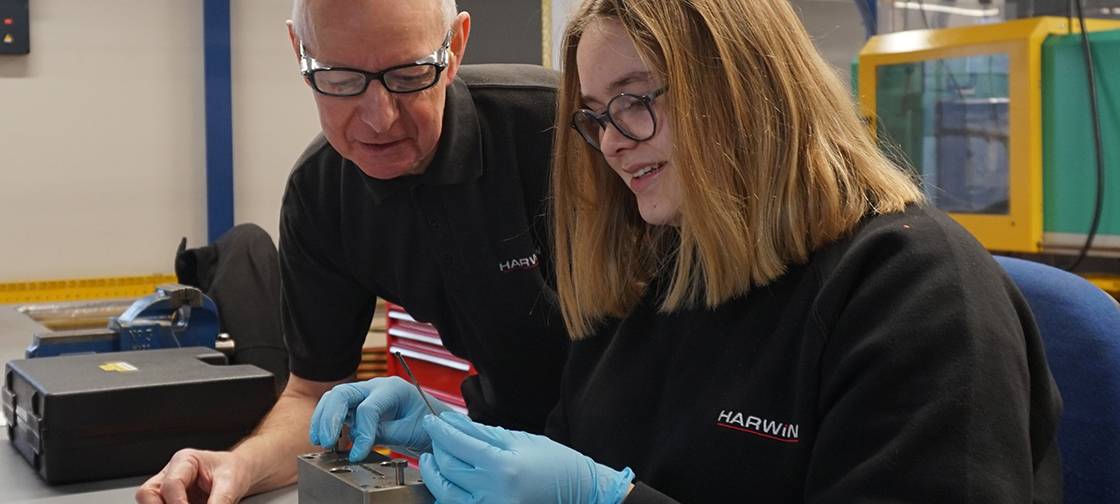There are widespread concerns being voiced throughout the media right now about just how stable the UK’s position as a major economic power really is. Its productivity levels have not been anything near what they should be for much of the last decade. Likewise, each year, the skills shortage is becoming more and more of a problem.
By Paul McGuinness, Director of Operations, Harwin
As we look to slowly drag ourselves out of the acute global recession that COVID-19 has placed us in, the need to properly address these matters is more pressing than ever. Industry, academia and government must all cooperate with one another in making a concerted effort to revitalise our engineering sector, if we are to return to prosperity – with better education and training clearly being at the foundation of this.
Britain’s manufacturing base has been slowly eroding away for generations, with much more attention being given to service-led industries instead. However, one thing that the COVID-19 situation has taught us is that retaining design/production capabilities within the country is still of paramount importance, and not having the resources to make vital equipment locally can prove to be a costly oversight.
Thankfully, some of the projects that British companies have been involved in (like developing and manufacturing ventilators and C-PAP machines, or 3D printing PPE equipment) have shown there is still plenty of ingenuity and engineering flair here in the UK. Now we really need to be better at tapping into it.
Over a prolonged period, the UK has seen an ever-widening gap between the engineering-related jobs available and the number of people that are qualified to fill them. The most recent estimates (based on research conducted by both EngineeringUK and the IET) suggest that the annual shortfall is somewhere between 20,000-30,000, and this is expected to rise even further in the coming years.
The reason for this is very simple: not enough is being done to attract new blood into our diminishing engineering ranks. Consequently, the engineering professionals reaching retirement age are not being replaced, and also new opportunities that are opening up simply can’t be capitalised upon.
There is a need for radical changes to our industrial landscape, with greater emphasis being given to the nurturing of nascent engineering talent. This has to start at a grass roots level and at the earliest opportunity, as children can build up preconceptions about the jobs that they might want to do (or conversely want to avoid) early in their lives.
In order to support government initiatives, companies could give talks at local schools and arrange site visits so that pupils can get a better idea of what an engineering career would actually entail. Companies may also want to look at helping to fund school-based electronics and coding clubs, make provision for pupils to do their work experience with them, offer summer jobs or internships, etc.
It is time to tackle the stark gender imbalance that still exists in engineering. Though women make up approximately half of the total British workforce, at the moment they only constitute a little over a tenth of the engineering fraternity. One of things that seems to put women off entering the profession is a lack of role models to inspire them.
This is something that has to be rectified, with more being done to show that engineering is no longer a male-dominated sector and highlighting the broad spectrum of different ways in which women can contribute to and lead projects that will be of benefit to our society.
One other point that should be mentioned is that there are many different entry points into the world of engineering. Though university courses still have a great deal of validity, this is not in any way exclusive. A variety of potential options can be considered, with some being more suitable to individuals than taking the traditional academic route.
The current problems that the country is facing should now act as a catalyst for a comprehensive re-evaluation of what drives our economy – with greater focus being placed, once again, on our engineering capabilities. Harwin is among a cohort of companies taking the lead on this. The company prides itself on supporting ongoing personal development and over a quarter of employees are currently participating in some form of educational/training activity to further progress their careers.
Central to Harwin’s own apprentice scheme is that participants get the chance to take ownership of projects and think for themselves. Every apprentice gets to spend time working, in turn, within each of the company’s core departments. This means they build up an appreciation of all aspects of the overall operation.
They are also tasked with looking at ways in which the efficiency of the company’s workflow can be enhanced, so that throughput may be boosted and running costs reduced. After completing the multi-faceted programme, Harwin offers support to graduated apprentices who may want to gain HNC/HND qualifications, or potentially enrol on to an engineering-related degree.
In mid-2019, the company opened the doors of its new Apprentice Training Hub, which is situated at its Portsmouth manufacturing facility. This has been fitted with the latest manufacturing equipment and development tools.
Adding another dimension to its engineer development efforts, the Harwin Academy was established by the company (in conjunction with Havant & South Downs College) a year earlier. The objective of this ongoing venture (which has now had two years of students enrolled) is to take school leavers and prepare them for entry into engineering-led vocations. This two-year course combines classroom-based instruction at the college campus with practical experience of working at Harwin’s Portsmouth site.
Both academy entrants and members of the apprenticeship intake are given the opportunity to operate a broad range of different items of machinery, as well as developing key skills like problem solving, time management and working as a team. The result is that well-rounded, hard-working young engineers emerge, ready to take on any challenge they are given.




